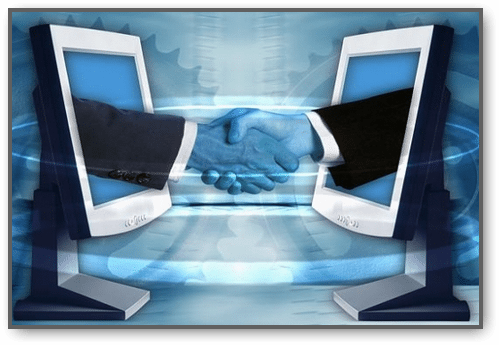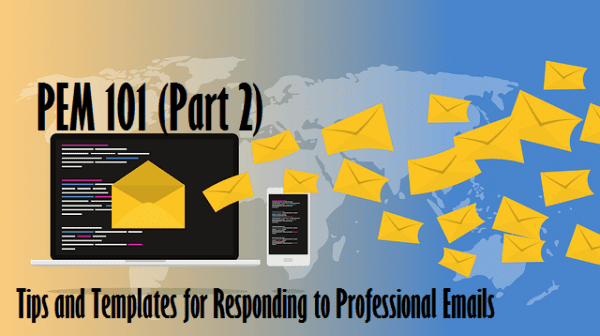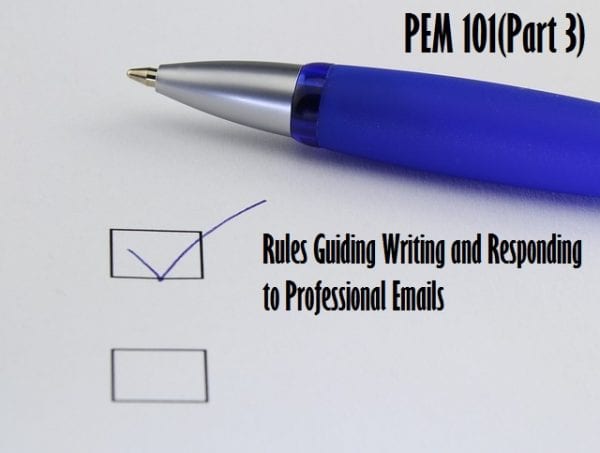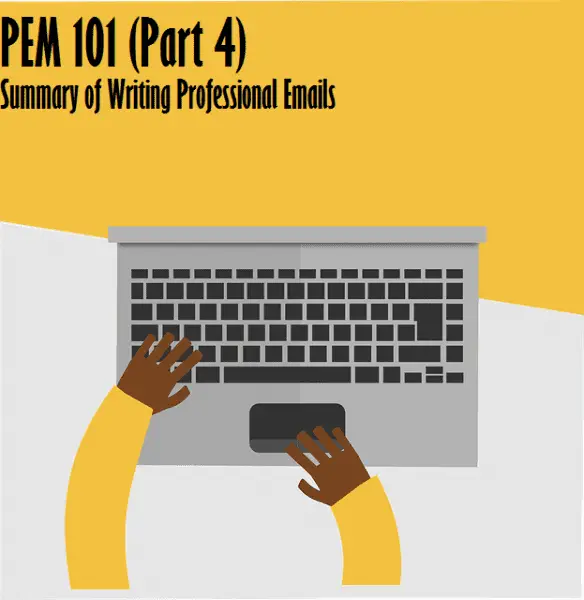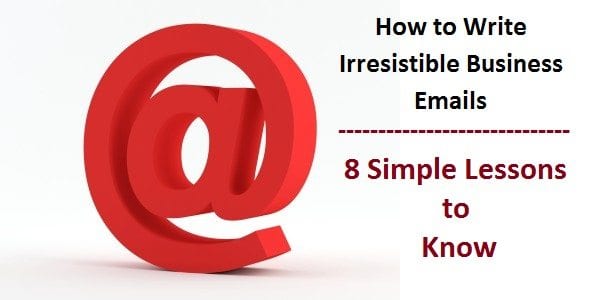In these days of Ipads, tablets, smartphones, PCs, laptops and several other electronic gadgets, email communication has crept so deep into the human culture. Unfortunately, this “new” means of communication has not been properly mastered by many people, even in professional environments.
This is most important for businesses and organizations where competition is fiercer, and clients should never be lost to unwarranted communication errors and mistakes. Hence, there is a huge need for the use of email etiquette in professional email writing in order to ensure productive communication in business-business as well as business-customer communications.
For example, many companies send email replies late or not at all while some send replies that do not actually answer the questions of their customers. If your company is able to deal professionally with email, this will provide your company with that all important competitive edge.
Why do you need email etiquette in professional email writing?
It is high time organizations began to enforce email etiquettes for everybody working for them and not just the staff in customer service. These e-mail etiquettes are very important for a couple of reasons:
- Professionalism: by using proper email language your company will convey a professional image.
- Efficiency: emails that get to the point are much more effective than poorly worded emails.
- Protection from liability: employee awareness of email risks will protect your company from costly lawsuits.
What are the basic etiquette rules in professional email writing?
While a lot of people understand the importance of following certain rules when writing business letters on paper, they often forget these rules when composing an email message. Here are a few basic rules that will greatly improve your professional emails and help you get more results from them:
Mind Your Manners
Think of the basic rules you learned growing up, like saying please and thank you. Address people you don’t know as Mr., Mrs., or Dr.
In professional email writing, only address someone by their first name if they imply it’s okay to do so.
Watch Your Tone
You want to appear respectful, friendly, and approachable. You don’t want to sound curt or demanding.
Be Concise
Get to the point of your email as quickly as possible, but don’t leave out important details that will help your recipient answer your query. Do not make an e-mail longer than it needs to be. Remember that reading an e-mail is harder than reading printed communications and a long e-mail can be very discouraging to read.
Be Professional
This means, stay away from abbreviations and don’t use emoticons (those little smiley faces) in professional email writing. Also, don’t use a cute or suggestive email address for business communications.
Use Correct Spelling and Proper Grammar
Use a dictionary or a spell checker — whichever works better for you. While you can write in a conversational tone (contractions are okay), pay attention to basic rules of grammar.
Do not attach unnecessary files
Because of computer viruses, many people won’t open attachments unless they know the sender. Wherever possible try to compress attachments and only send attachments when they are productive.
If you have to email more than two documents as attachments, zip them in one file. Doing so would ensure that the recipient won’t miss downloading any file.
Wait to Fill in the “TO” Email Address
Wait till you are completely through proofing the email and be sure that it is exactly the way that you want it. This will keep you from accidentally sending an email prematurely.
Answer all questions, and pre-empt further questions
An email reply must answer all questions, and pre-empt further questions. Moreover, if you are able to pre-empt relevant questions, your customer will be grateful and impressed with your efficient and thoughtful customer service.
Answer swiftly
In professional email writing, each e-mail should be replied to within at least 24 hours and preferably within the same working day. If the email is complicated, just send an email back saying that you have received it and that you will get back to them. This will put the customer’s mind at rest and usually customers will then be very patient!
Do not overuse the high priority option
Overusing the high priority option will make it lose its function when you really need it. Moreover, even if a mail has high priority, your message will come across as slightly aggressive if you flag it as ‘high priority’.
In essence, avoid using URGENT and IMPORTANT. Generally, avoid using these types of words in an email or subject line. Only use this if it is a really, really urgent or important message.
Do not write in CAPITALS
WRITING IN CAPITALS CAN SUBCONSCIOUSLY DEPICT SHOUTING.
This can be highly annoying and might trigger an unwanted response in the form of a flame mail. Therefore, be careful with the use of capital letters in e-mails.
Don’t leave out the message thread
When you reply to an email, you must include the original mail in your reply. In other words click ‘Reply’, instead of ‘New Mail’.
Use a meaningful subject
Try to use a subject that is meaningful to the recipient as well as yourself. For instance, when you send an email to a company requesting information about a product, it is better to mention the actual name of the product, e.g. ‘Product A information’ than to just say ‘product information’ or the company’s name in the subject
Use active instead of passive
Try to use the active voice of a verb wherever possible. For instance, ‘We will process your order today’, sounds better than ‘Your order will be processed today’. The first sounds more personal, whereas the latter, especially when used frequently, sounds unnecessarily formal.
Don’t forward chain letters
Chain letters usually begin as an email message that promises incredible riches or ask your help for a charitable cause. By forwarding them, you use valuable bandwidth and sometimes they may contain viruses. Even if the content seems to be bona fide, the senders are usually not.
Conclusion
In conclusion, rather than using e-mail service as just a faster means of communication, it is very prudent to harness its powerful potentials to boost productivity and ultimately, increase profit in business.

